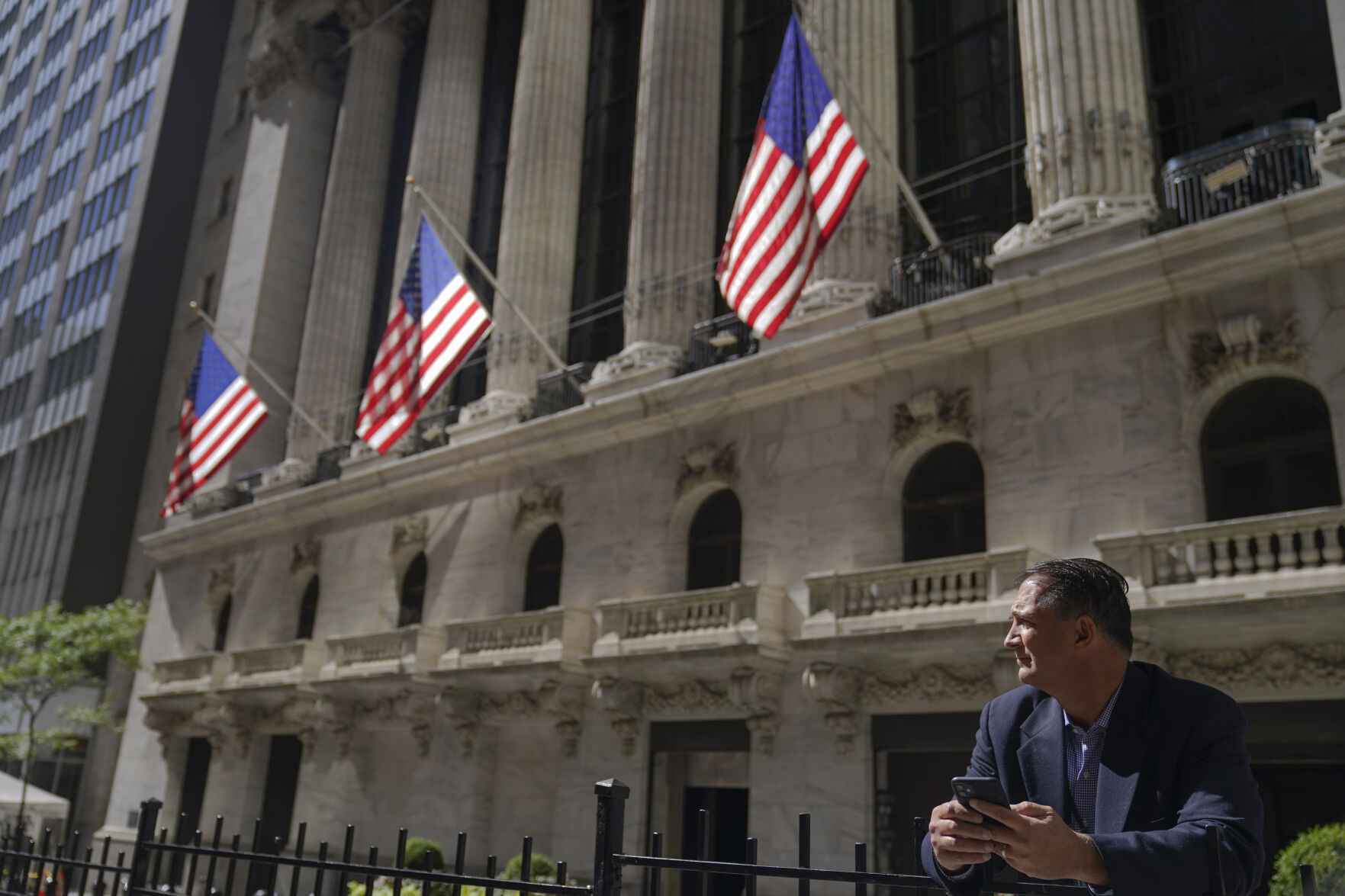NEW YORK — Stocks edged lower in uncertain trading on Wall Street today as investors brace for higher interest rates from central banks to fight inflation.
The S&P 500 fell 0.2% as of 9:20 a.m. Central. The Dow Jones Industrial Average rose 60 points, or 0.2%, to 32,983 and the Nasdaq fell 0.7%. Small company stocks also fell. The Russell 2000 slipped 0.4%.
Every major index is coming off of two weeks of losses. Markets have been slumping as hopes for a gentler Federal Reserve vanish amid stubbornly hot inflation. The Federal Reserve last week raised its forecast of how long interest rates have to stay elevated to cool inflation that has been hurting businesses and threatening spending. The European Central Bank also warned that more rate hikes are coming.
Technology stocks were among the biggest losers. Microsoft fell 1% and Apple fell 1.2%.
Facebook’s parent company fell 2.9% after the European Union accused the company of breaching antitrust rules by distorting competition in the online classified ads business.
U.S. crude oil prices rose 2%. European markets gained ground and Asian markets closed lower overnight.
Treasury yields gained ground. The yield on the 10-year Treasury, which influences mortgage rates, rose to 3.58% from 3.49% late Friday.
Investors have several economic reports to review this week as they try to determine the continuing path of inflation.
The National Association of Realtors delivers its November tally of U.S. home sales Wednesday. Home sales have been falling, but prices in the housing market have remained strong.
The Conference Board will release its consumer confidence report for December on Wednesday. Consumer confidence and spending has been another strong area of the economy, but inflation is starting to put a tighter squeeze on consumers.
The government will release a closely watched monthly snapshot of consumer spending on Friday, the personal consumption expenditure price index for November. The report is monitored by the Fed as a barometer of inflation.


